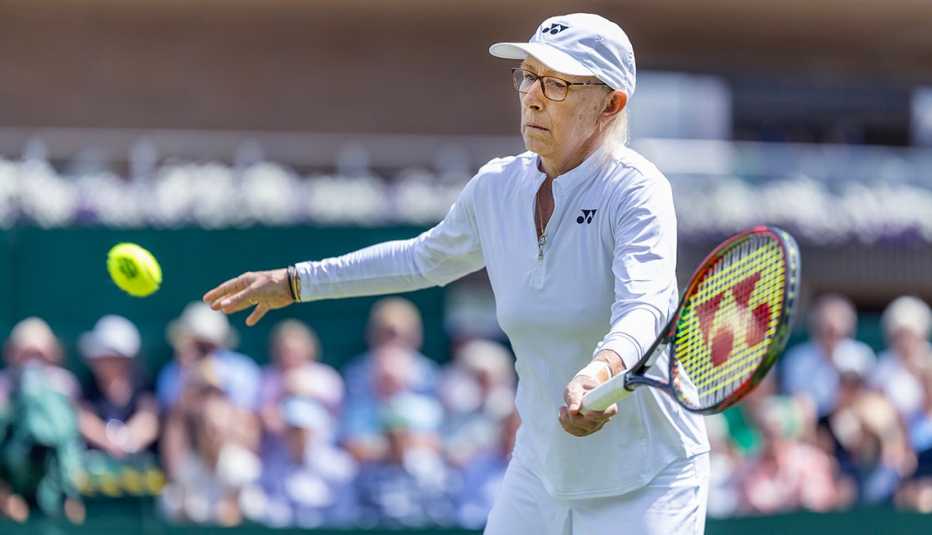AARP Hearing Center


Nearly four months after getting the “all-clear” from her doctors, three-time cancer survivor Martina Navratilova, 66, met with patients at the American Cancer Society Hope Lodge in New York City, which offers free lodging for patients who travel from far away to the city to receive treatment. Navratilova visited the facility as part of Breast Cancer Awareness Month.
The tennis icon’s own history with the disease dates to 2010 when she had a lumpectomy after a breast cancer diagnosis.
Then in early 2023, she received a tough new diagnosis, a “double whammy” of breast cancer and throat cancer. “I was like, how the hell is this possible?” she told the Hope Lodge community. “It’s not related to the first one and not related to each other.”


As she spoke with patients, Navratilova exhibited the toughness she showed on the tennis court for decades. “I’ve gone through three cancers now, and chances are I’m not going to have another one — this is not in my genetic makeup,” she said.
But her raw vulnerability also came through. “The possibility is always there. You just have to believe that it’s not going to be for decades. … At the same time, it puts you face-to-face with your mortality, whatever your age is.”
After a tour of the facilities, Navratilova sat down with AARP’s Edward C. Baig to discuss her cancer journey. Questions and responses have been edited for clarity and brevity.
As you look back at the challenges, not only in your tennis career but in defecting from your native Czechoslovakia in 1975, how has that helped you get through everything you’ve been through with cancer?


It was the hardest thing, other than leaving my family behind. But, of course, I was 18, 19 years old when that happened. So you think everything is going to turn out just fine. When you get older, you become risk averse. You know how many things can go wrong. And with this [diagnosis], it was like, “Holy s***, what’s going to happen? How am I going to deal with it, physically [and] emotionally?” Once the treatment started, then you can see the end of the road. The emotional part was easier, but the physical was brutal. And, you know, I’ve trained really hard before. It was nothing compared to what I had to go through on a daily basis.
What was your treatment like?
The problem was that I did chemo and proton therapy at the same time. You don’t know what’s doing what to your body. And after about two weeks, the throat started closing up, [I got] mouth sores and the hardest thing to do [was] swallow. Even a small thing like yawning, it stops the yawn because your throat closes down. Which is nothing in the grand scheme of things, but there’s so many different ways that you get affected. I got really cold, just shivering even though the room was warm.
Physically, I couldn’t take two hands and sip [water] like this because you didn’t have the strength and control of your muscles. Standing was impossible, walking was OK, slowly. But then when you stop, you have to sit down because you feel like you’re just going to collapse like the toy you push and it collapses. That’s what you feel like, a human collapsible.
So the chemo just kills you, and the proton slowly gets you tired. And it’s all cumulative. You don’t really start getting better until after the last chemo; I had three chemo sessions. Treatment [was] seven weeks, and you just take it one day at a time, and I was counting every day. I knew when I passed the one-third mark, one-half mark, three quarters; it was the longest seven weeks of my life.







































































More From AARP
Robin Roberts Says Caregiving Made Her And New Wife Closer
After 18 years with Amber Laign, the longtime couple said 'I do'
Terry Bradshaw on Overcoming Cancer: ‘My Strength ... Came From My Faith’
The NFL Hall of Famer shares the power of football and faith
12 Best Films and Shows About Women in Sports
The winners, from ‘A League of Their Own’ to ‘I, Tonya’